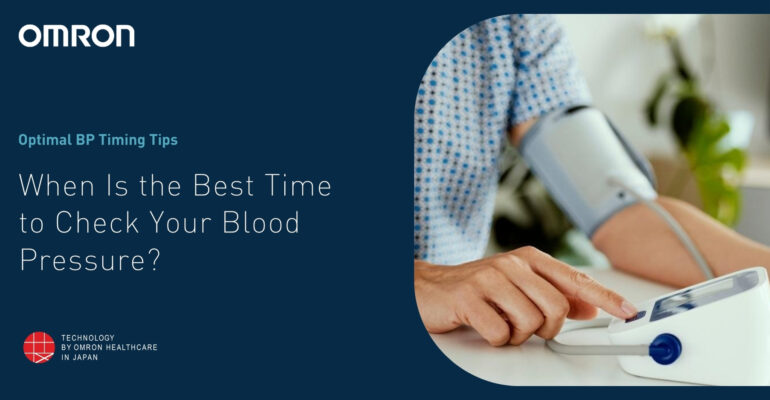When Is the Best Time to Check Your Blood Pressure?
December 1, 2023 2024-06-26 15:33When Is the Best Time to Check Your Blood Pressure?

When Is the Best Time to Check Your Blood Pressure?
Maintaining a healthy lifestyle involves monitoring various aspects of your well-being, and one crucial element is keeping tabs on your blood pressure. High blood pressure, or hypertension, often goes unnoticed as it rarely exhibits noticeable symptoms.
Regular monitoring can help you catch potential issues early on, preventing serious health complications. However, the timing of your blood pressure measurements can significantly impact the accuracy of the readings. In this blog, we will explore the best time to check your blood pressure and why it matters for your overall health.
Morning Routine: A Prime Time for Measurement
For many individuals, the morning is considered an optimal time to check blood pressure. This is because blood pressure tends to be lower during sleep and gradually increases as you wake up and go about your day. The morning reading can provide a baseline measurement, giving healthcare professionals valuable information about your cardiovascular health.
However, it’s crucial to follow a few guidelines for accurate morning measurements. Ideally, you should measure your blood pressure before consuming any food or caffeine. Also, it’s recommended to use the restroom beforehand, as a full bladder can affect readings. By incorporating these habits into your morning routine, you can ensure that your blood pressure is measured under consistent conditions, allowing for more accurate comparisons over time.
Avoiding the Rush: Midday and Evening Readings
While morning readings offer a baseline, checking your blood pressure at different times of the day provides a more comprehensive picture of your cardiovascular health. Some healthcare professionals suggest measuring blood pressure in the midday and evening as well. This helps identify any fluctuations and patterns that may not be evident from a single reading.
For midday measurements, it’s advisable to wait at least two hours after consuming a meal. This allows your body to digest the food, preventing any temporary spikes in blood pressure associated with the digestive process. Evening readings are typically taken before bedtime, offering insights into how your blood pressure responds to the stressors of the day and how it adjusts during rest.
Consistency is Key: Establishing a Routine
Regardless of the time you choose, consistency is crucial when monitoring your blood pressure. Select a time that fits into your daily routine and stick to it. This consistency helps healthcare professionals interpret the results accurately and identify any potential issues. It’s also essential to use the same arm for measurements each time, as variations between arms can impact the readings.
Factors Influencing Blood Pressure: Understanding the Dynamics
Factors like physical activity, stress levels, and even the time of day can alter blood pressure. Stressing the need to take when determining the ideal test time is crucial. By acknowledging these influences, you can make informed decisions about when to check your blood pressure and how to interpret the results.
Special Considerations: Chronic Conditions and Medication
Individuals with chronic conditions or those taking medication to manage blood pressure should consult their healthcare provider for personalized guidance. Certain medications may affect blood pressure at specific times of the day, and healthcare professionals can provide recommendations tailored to individual health needs.
As technology continues to advance, tools like the Omron blood pressure monitor have become invaluable for individuals seeking convenient and accurate ways to monitor their blood pressure at home. Omron, a leading brand in healthcare technology, provides reliable and user-friendly devices that empower individuals to take control of their cardiovascular health.
Conclusion
In conclusion, the best time to check your blood pressure depends on various factors, including your daily routine, lifestyle, and health conditions. Consistency in monitoring, adherence to recommended guidelines, and awareness of influencing factors are key components of effective blood pressure management.






